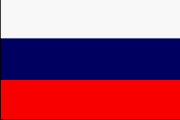





The Federal Security Service (FSB - Federal'naya Sluzhba Bezopasnosti, previously known as Federal Counterintelligence Service - FSK) is one of the successors of the KGB, and remains haedquarterd in the Lubyanka. Internal security functions previously performed by the Second, Third and Fifth Chief Directorates and the Seventh Directorate were initially assigned to a new Ministry of Security. But agency was disbanded December 1993 and replaced by the Federal Counterintelligence Service [Federal'naya Sluzhba Kontr-razvedky - FSK]. This 75,000-person agency was subsequently redesignated the Federal Security Service (FSB).
In 1903 the first Russian military counterintelligence organ, which operated mainly in St. Petersburg, was esablished to counteract military espionage being carried out by foreign intelligence services against Russia. The beginning of World War I prompted the Russian Government to adopt a more thorough approach to the organization of the counterintelligence service in the army. By agreement with Nicholas II, the government adopted a decision on the formation of counterintelligence departments under the military districts, followed by counterintelligence organs in theaters of hostilities.
Immediately after the October 1917 Revolution one step for the counterintelligence protection of Red Army units was the formation (in July 1918) of the Extraordinary Commission for Combating Counterrevolution on the Eastern Front. At the same time the function of combating espionage was made the responsibility of the military control organs that were set up in the Red Army and Navy. They were subordinate to the command, and were organizationally part of the operational staffs.
Colonel General Igor Mezhakov, deputy director of the FSB, was dismissed in September 1995. Rumors indicated that he was widely disliked, having been a membe of the commission that investigated the role of the KGB leadership in August 1991 coup]. Lieutenant General Anatoliy Semenov, chief of the Antiterrorism Directorate, was dismissed from his position the same day as Mezhakov. Since spring of 1996 Semenov has been head of the president's Main Directorate of Cossack Troops. Lieutenant General Anatoliy Krayushkin, head of the Directorate of Records and Archives, left his job in September 1995. It was rumored that he had fallen under suspicion in connection with a German intelligence agent. Lieutenant General Vladimir Tsekhanov, chief of the Economic Counterintelligence Directorate, was removed from his position in early summer 1996. He was one of the initiators of the scandal involving the joint-stock company Lenzoloto which resulted in criminal indictments.When senior Yeltsin aides Oleg Soskovets, Mikhail Barsukov, and Aleksandr Korzhakov were abruptly dismissed on 20 June 1996, Mikhail Barsukov had served as FSB head for less than a year. Barsukov took over the leadership of the FSB from Sergei Stepashin in July 1995 in the wake of the Budennovsk hostage crisis. Yeltsin named a deputy director of the Federal Security Service (FSB), Colonel General Nikolai Kovalev, as its new acting chief. Kovalev's intelligence service activity began in 1974 with his entrance in the KGB, where he joined the Fifth Directorate, which dealt with ideological questions and the questions related to dissidents. He served for two years in Afghanistan and later working in the Moscow and Moscow Oblast branches of the FSB before being made deputy director with responsibility for the Investigations Directorate, Directorate for Economic Counterintelligence, and Operational Reconnaissance Directorate. After his nomination to the FSB, Kovalev told the news media that he saw the emphasis of his activities in the economic security of Russia and in the fight against corruption. In addition, he promised to focus on measures to respond to increasing activities of foreign intelligence services in Russia.
On 25 July 1998 Yel'tsin nominated Vladimir Putin as Director of the Federal Security Service. The Russian and foreign media knew very little about the new boss of the FSS and latched on to his past in the KGB and his less than cuddly media image. Putin became a permanent member of the Security Council at the beginning of October 1998, and at the end of March 1999 the Secretary of the Council. His position as the head as the FSS gave him also a seat on the Interdepartmental State Defence Orders Commission.Putin kept his FSB job until 09 August 1999 when Boris Yel'tsin made him Acting Prime Minister. His FSB position was given to N P Patrushev.
